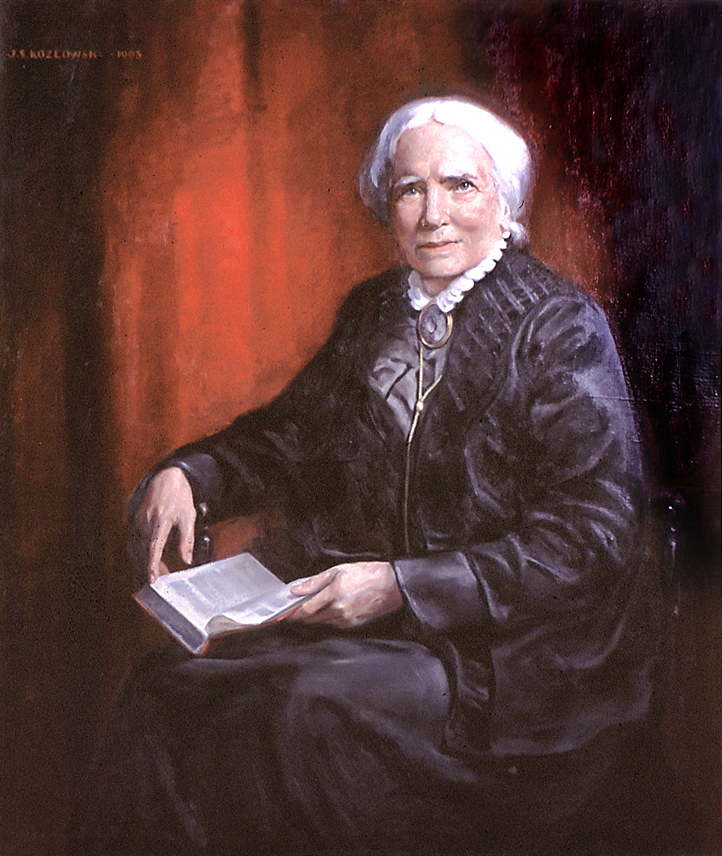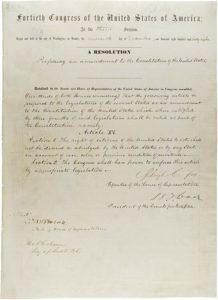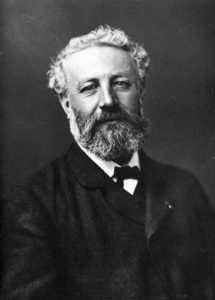The Week in History, Feb. 2nd – 8th

Portrait of Elizabeth Blackwell in 1905,1
“None of us can know what we are capable of until we are tested.”
“The idea of winning a doctor’s degree gradually assumed the aspect of a great moral struggle, and the moral fight possessed immense attraction for me.”
— Elizabeth Blackwell
After losing his profitable business to a fire, Elizabeth Blackwell’s father emigrated with his family from Bristol, England to the United States in 1832 with the goal of helping to abolish slavery here.
His daughter Elizabeth, who was one of what was to eventually be nine siblings, was eleven years old at the time.
She was born this week in history.2
Elizabeth’s father supported the education of all his children, regardless of their gender and so Elizabeth had a good start towards becoming the first woman to earn a medical degree from an American College in the United States. Although she encountered resistance along the way, by persevering she triumphed.3
Dr. Blackwell’s life was too full and accomplished to briefly list here her many achievements but you can checkout the online graphic novel, Elizabeth Blackwell America’s first woman doctor, through the Clark Libraries website to learn more about her success.
The 15th Amendment to the US Constitution was ratified this week in 1870.

Section 1 of the Amendment states: “The right of citizens of the United States to vote shall not be denied or abridged by the United States or by any State on account of race, color, or previous condition of servitude—“
Section 2 of the Amendment states: The Congress shall have the power to enforce this article by appropriate legislation.
If only it was that easy.
The first US Supreme Court decision regarding the Amendment was written at the conclusion of the US v. Reese trial* in 1873.5 The text of the decision begins: “The Fifteenth Amendment does not confer the right of suffrage upon anyone. It prevents the States, or the United States, however, from giving preference…”
Due to the court’s decision, the general public soon came to believe that voting rights could not be enforced by the amendment. The decision eventually resulted in the disenfranchisement of African American voters and for many years was a blow to civil rights.
To learn more about the 15th Amendment and the subject of suffrage, check out The right to vote : the contested history of democracy in the United States JK1846 .K48 2000
“Science, my lad, is made up of mistakes, but they are mistakes which it is useful to make, because they lead little by little to the truth. – Jules Verne6

This week is the 192nd birthday of one of science fiction’s founding authors, Jules Verne. He was the author of 54 novels – a collection titled the Voyages Extraordinaire.8
Verne is the author of 20,000 Leagues Under the Sea, The Mysterious Island, From the Earth to the Moon, Around the World in Eighty Days and Journey to the Center of the Earth and 49 other works.
According to Verne’s editor Pierre-Jules Hetzel, the goal of the Voyages was “to outline all the geographical, geological, physical, and astronomical knowledge amassed by modern science and to recount, in an entertaining and picturesque format … the history of the universe.”[2]
You can find 20,000 Leagues Under the Sea (see PQ2469 .V413 1977) and many of Verne’s other works in the General collection.
1 https://commons.wikimedia.org/wiki/File:EBlackwell1905.jpg
2 https://cfmedicine.nlm.nih.gov/physicians/biography_35.html
3 https://en.wikipedia.org/wiki/Elizabeth_Blackwell
4 https://commons.wikimedia.org/wiki/File:15th_Amendment_Pg1of1_AC.jpg
5 https://en.wikipedia.org/wiki/United_States_v._Reese
6 https://www.brainyquote.com/authors/jules-verne-quotes
7 https://en.m.wikipedia.org/wiki/File:F%C3%A9lix_Nadar_1820-1910_portraits_Jules_Verne.jpg
8 https://en.wikipedia.org/wiki/Voyages_extraordinaires

